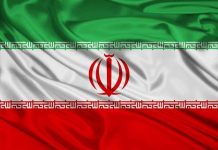DM Monitoring
NEW YORK: The United Nations, United States, Russia and the European Union met virtually to discuss relaunching their long-stalled efforts to get Israel and the Palestinians to negotiate a two-state solution to the decades-old conflict.
A brief statement from the four Middle East mediators, known as the Quartet, said envoys discussed returning “to meaningful negotiations that will lead to a two-state solution, including tangible steps to advance freedom, security and prosperity for Palestinians and Israelis, which is important in its own right,” The Associated Press (AP) reported.
There have been no substantive peace talks between Israel and the Palestinians since 2014, and the two sides are fiercely divided over the core issues of the conflict.
The U.N. sent out the statement on the Quartet discussion after polls closed in Tuesday’s Israeli election. Exit polls indicated there was no clear winner, leaving Prime Minister Benjamin Netanyahu’s fate uncertain and signaling continued political deadlock in Israel. With more than 85% of the vote counted by Wednesday morning, Netanyahu’s Likud party and it’s ultra-Orthodox and far-right allies fell short of a 61-seat majority – even if the Yamina party of Netanyahu ally-turned-critic Naftali Bennett were to join a Netanyahu-led government.
Bennett has refused to endorse either side. At the same time, a small Arab party emerged as a potential kingmaker on Wednesday morning after the latest count indicated it would cross the threshold to get into parliament. Like Bennett, the head of the Ra’am party, Mansour Abbas, has not ruled out joining either camp. The initial results showed the country as deeply divided as ever, with an array of small sectarian parties dominating the parliament.
The results also signaled a continuing shift of the Israeli electorate toward the right wing, which supports occupied West Bank settlements and opposes concessions in peace talks with the Palestinians.
During the campaign, Netanyahu emphasized Israel’s highly successful coronavirus vaccination drive. He moved aggressively to secure enough vaccines for Israel’s 9.3 million people, and in three months the country has inoculated some 80% of its adult population.
He also tried to portray himself as a global statesperson, pointing to the four diplomatic accords he reached with Arab countries last year. Recently, Netanyahu also vowed to start flights from Tel Aviv to Mecca if he wins. In late January, Guterres said there were “reasons to hope” for progress toward ending the Israeli-Palestinian conflict after years of inaction.




